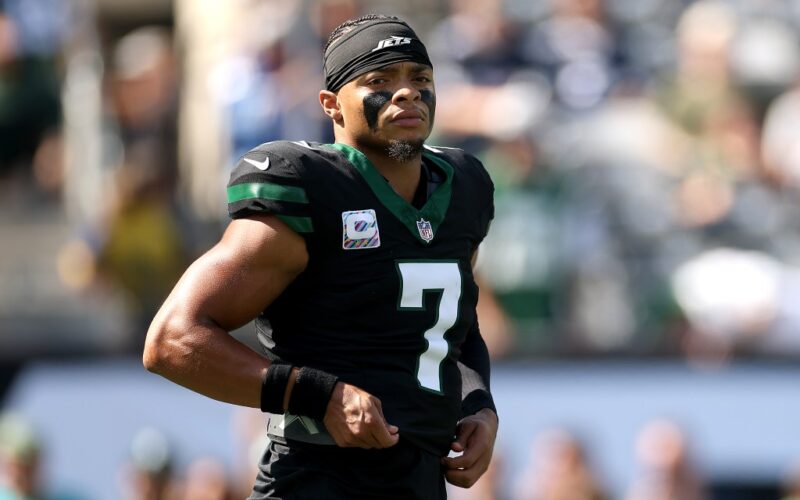Jets head coach Aaron Glenn knows all too well what a prolonged losing streak to start a season looks like.
Glenn was a cornerback on the 1996 Jets team that started 0-8, and then the defensive coordinator for the Detroit Lions team that began 0-8 in 2021.
So how is Glenn processing his Jets’ 0-6 start this year in his first season as head coach?
“The same way I processed it when I was in Detroit,” Glenn said after Sunday’s 13-11 loss to the Denver Broncos in London. “It is what it is. You’ve got to keep working. No one’s gonna feel sorry for you. … It’s not like this hasn’t happened to other teams before.”
Indeed, this is the third time in Jets history that they’ve started 0-6, following in the unenviable footsteps of the 1996 and 2020 teams.
Glenn and his players stress the need to keep fighting, as they should, but if the Jets’ previous 0-6 starts are any indication, they are likely in for another long season.
Not much of a turnaround ever came for the 1996 Jets, who finished 1-15, or the 2020 team, which ended up 2-14.
Those remain the two worst records in franchise history.
The 1996 team shared some similarities with this year’s Jets. After going 3-13 in 1995, the Jets released a big-name veteran quarterback in Boomer Esiason and signed a free agent from the Pittsburgh Steelers, Neil O’Donnell, to replace him.
Of course, this year’s Jets released Aaron Rodgers in the offseason, then signed Justin Fields from the Steelers to replace him.
The Jets started 0-6 under O’Donnell, who suffered a season-ending shoulder injury while warming up before Week 7. Frank Reich took over at quarterback and endured two more losses before leading the Jets to their one and only win in Week 9.
Rich Kotite, who was in his second year as the Jets’ head coach, announced his resignation two days before the season finale, and the Jets ended the year on a seven-game losing streak.
The following offseason, the Jets hired Bill Parcells as head coach. They famously eyed Peyton Manning with the No. 1 overall pick in the 1997 NFL Draft, but Manning returned to Tennessee for his senior season, and the Jets ultimately traded down.
O’Donnell returned as the starting quarterback, and the Jets went 9-7 in Year 1 under Parcells.
The 2020 season came with a different set of circumstances.
After a hot finish led to a 7-9 record in 2019, the Jets had some reason for optimism in 2020. Former No. 3 overall pick Sam Darnold was entering his third season. Head coach Adam Gase was going into his second at the helm. And the Jets had just made a well-regarded general manager hiring with Joe Douglas.
Instead, the season turned into an unmitigated disaster as Darnold dealt with regression and injury and Gase’s seat got hotter and hotter.
The Jets started a woeful 0-13, but the silver lining was that Trevor Lawrence was draft-eligible and considered a can’t-miss prospect at quarterback.
But in a final gut punch, Darnold led the Jets to two out-of-nowhere victories in Weeks 15 and 16, costing them the No. 1 overall pick.
The Jets fired Gase in the offseason and hired Robert Saleh to replace him, then traded Darnold to the Carolina Panthers.
After the Jacksonville Jaguars drafted Lawrence first overall, the Jets’ consolation prize with the No. 2 pick was Zach Wilson, who lasted three seasons with the team and went 12-21 as a starter.
The good news for this year’s Jets is that the schedule lightens up considerably moving forward.
The Jets have the fourth-easiest remaining strength of schedule, according to Tankathon. Their next three games are at home against a Panthers team (3-3) that is winless on the road; on the road against the Joe Burrow-less Bengals (2-4); and back home against the 1-5 Cleveland Browns.
But if this season continues to spiral like the 1996 and 2020 ones did, wholesale changes could be on the horizon.
“We’ve got to keep going,” Fields said. “I mean, there’s no other option. There’s, what, 11 games left? That’s the only option.”








